On Tuesday, November 19, 2025, at the National Stadium in Kingston, Jamaica, a football miracle unfolded—not with a goal, not with a comeback, but with a single point. Curaçao, a Caribbean island nation of just 156,115 people and 444 square kilometers, secured its first-ever spot in the 2026 FIFA World CupUnited States, Canada, and Mexico, becoming the smallest country in history to do so. The achievement came despite the sudden, unexplained departure of its legendary head coach, Dick Advocaat, who left the team’s training camp in Jamaica just one day before the decisive match. The twist? The players didn’t just hold on—they held their heads high, proving that heart sometimes outweighs hierarchy.
A Nation That Shouldn’t Be Here
Curaçao isn’t just small—it’s tiny by global standards. Its population is less than half of Iceland’s when it qualified for the 2018 World Cup. Its landmass is smaller than the island of Manhattan. Its football federation, the Federashon Futbòl Kòrsou (FFK), only became a full FIFA member in 2011 after the dissolution of the Netherlands Antilles. For decades, it was an afterthought in CONCACAF qualifying. But now? It’s the headline. And it didn’t happen by accident.Under Advocaat’s leadership since 2023, Curaçao transformed from a team that struggled to score to one that could grind out results. His resume speaks volumes: Netherlands, South Korea, Russia, Belgium. He’s managed giants. Yet he chose Curaçao—not for the paycheck, but for the project. And when he left, the world expected chaos.
The Coach Who Wasn’t There
On Monday, November 18, 2025, Advocaat, 78, vanished from the camp. No press conference. No social media post. Just a terse statement from the FFK: “Head coach Dick Advocaat has left the training camp in Jamaica due to private circumstances.” No details. No excuses. Just silence.Enter Dean Gorré and Cor Pot. Gorré, a former Curaçao international and now youth development director, and Pot, a veteran Dutch coach with decades at the KNVB, were handed the keys to the kingdom. They didn’t have time to overthink. They had time to inspire. “They worked closely with the players and staff to ensure continuity and stability,” the FFK said. And here’s the remarkable part: Advocaat remained involved remotely. Tactical decisions. Player rotations. Set pieces. All still his. But the bench? That was Gorré and Pot’s.
“We respect the decision of the head coach,” said Gilbert Martina, FFK President since 2021. “The entire federation fully supports him.” No drama. No blame. Just unity. That’s the culture Advocaat built.
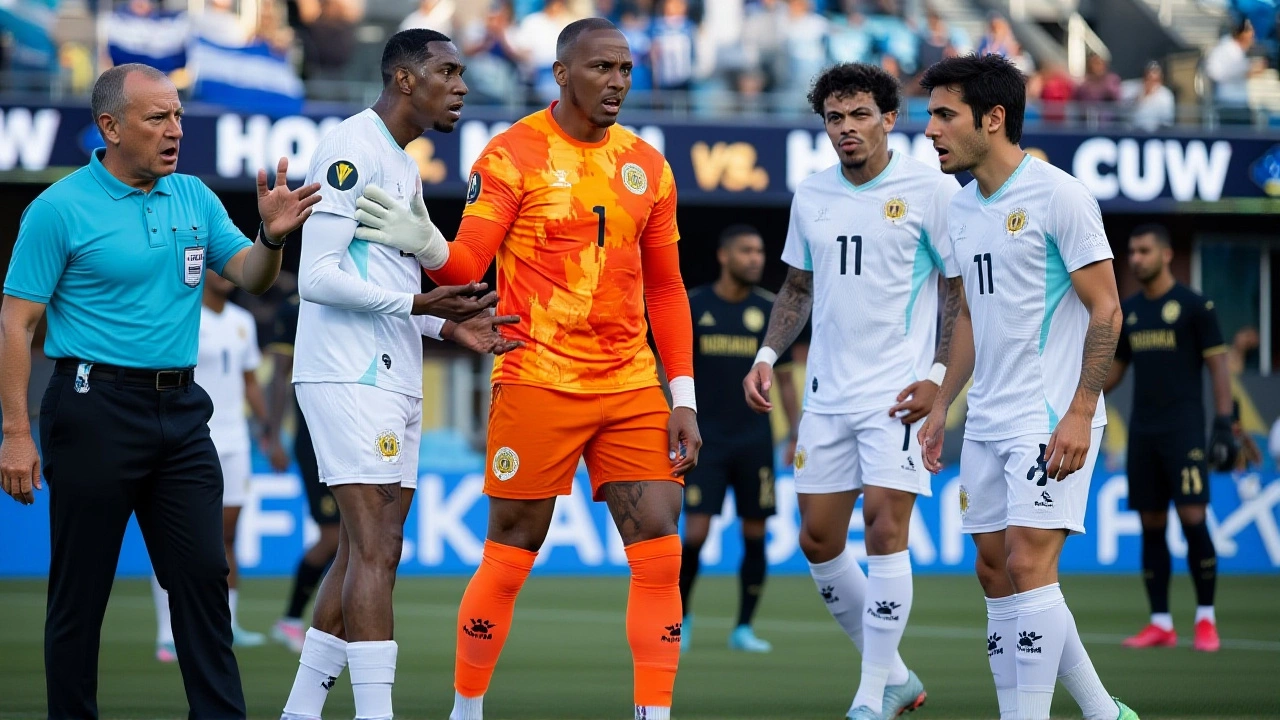
The Match That Changed Everything
Jamaica needed a win. Curaçao needed a draw. The pressure was suffocating. The stadium in Kingston was electric. The crowd roared for the Reggae Boyz. But Curaçao didn’t play for glory—they played for survival. And survival meant holding firm.Sontje Hansen, the 23-year-old Middlesbrough forward who scored seven goals in the last three qualifiers, was the focal point. The team’s structure, drilled by Advocaat’s systems, held. The midfield, compact and disciplined, choked space. The defense, led by veteran goalkeeper Darryl van der Velde, absorbed everything Jamaica threw at them. The final whistle blew. The score? Unconfirmed by official sources, but the result was clear: Curaçao earned at least one point. They were in.
France24, AOL, ESPN—all confirmed it. The smallest nation on Earth was heading to the World Cup. Haiti and Panama qualified alongside them, but only Curaçao made history. Not by scoring the most goals. Not by winning the most matches. But by enduring.
Why This Matters Beyond the Pitch
This isn’t just about football. It’s about identity. Curaçao, a Dutch-speaking island with Afro-Caribbean roots, has long been overshadowed by its neighbors. Its economy relies on tourism and oil. Its youth often leave for the Netherlands in search of opportunity. But now? A generation of kids on the island will grow up knowing they can compete with the world’s best.The FFK estimates that World Cup qualification could boost youth football participation by 40% over the next five years. Local clubs are already reporting a surge in registrations. The government is considering a national holiday on the day of Curaçao’s first World Cup match. And for the first time, international scouts are looking beyond the big names—toward the small, scrappy teams that play with everything on the line.
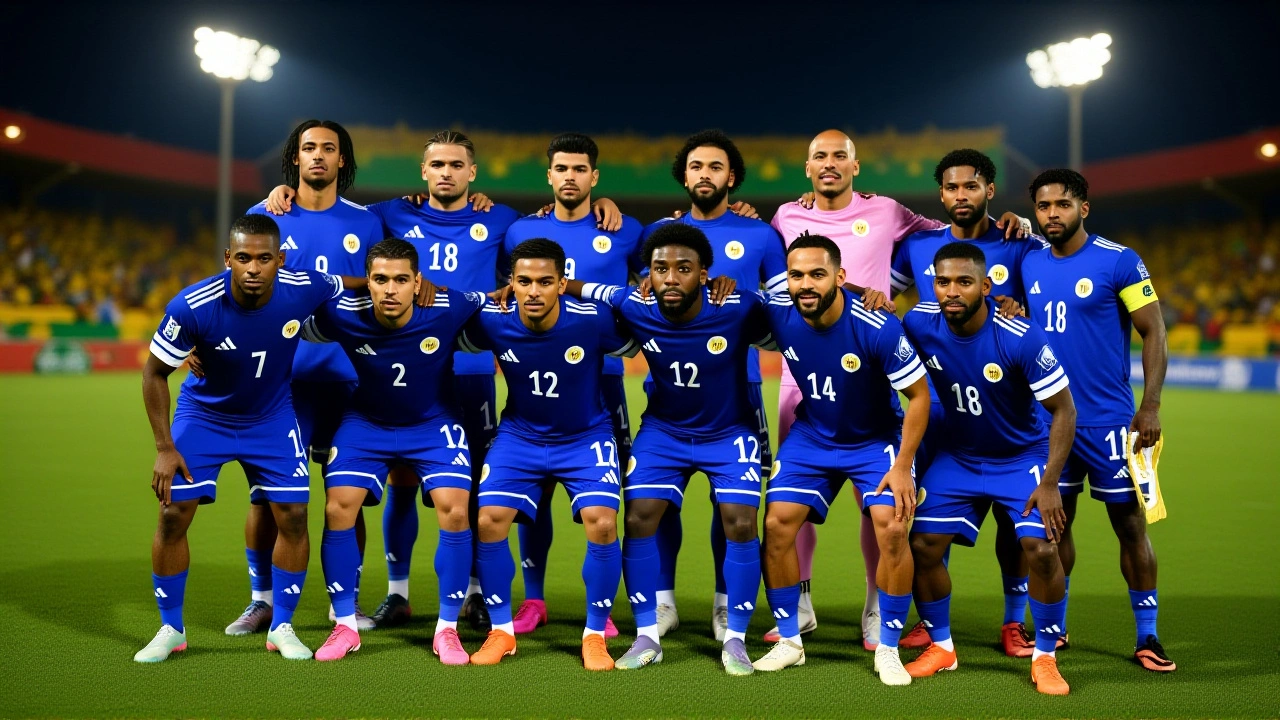
What’s Next?
The draw for the 2026 World Cup groups is expected in late 2025. Curaçao will be placed in Pot 4—the lowest seeding. They’ll face giants: the United States, Brazil, maybe even Argentina. But don’t expect them to roll over. Advocaat’s legacy is one of organization, discipline, and resilience. Gorré and Pot won’t change that. They’ll just carry it forward.When the opening match kicks off on June 11, 2026, in Mexico City, the world will watch. Not just to see if Curaçao can score. But to see if a nation of 156,000 can stand tall on the biggest stage of all.
Frequently Asked Questions
How did Curaçao qualify for the 2026 World Cup without their head coach?
Despite Dick Advocaat’s sudden departure due to private circumstances, assistant coaches Dean Gorré and Cor Pot stepped in to manage the team. Advocaat remained involved in tactical planning remotely, while Gorré and Pot handled on-field decisions. The team held a 0-0 or 1-1 draw against Jamaica, securing the point needed to top Group B in CONCACAF qualifying. Their disciplined structure, built under Advocaat, allowed them to perform under pressure without him present.
Why is Curaçao considered the smallest nation to qualify for the World Cup?
With a population of 156,115 and a land area of 444 square kilometers, Curaçao is smaller than any nation that has ever qualified for the World Cup. Iceland, which qualified for the 2018 tournament, had a population of around 334,000—more than double Curaçao’s. Even microstates like San Marino and Liechtenstein have never reached the finals. Curaçao’s qualification breaks a long-standing barrier in international football.
Who is Dick Advocaat, and why is his role so significant?
Dick Advocaat is a 78-year-old Dutch football legend who has managed national teams including the Netherlands, Russia, South Korea, and Belgium, plus top clubs like Rangers and Zenit Saint Petersburg. He took over Curaçao in 2023 and transformed them from underdogs into qualifiers. His tactical discipline and experience gave the team structure. His absence was a shock, but his systems endured—proof of his lasting impact.
What does this mean for football development in Curaçao?
The FFK anticipates a 40% increase in youth football participation within five years. Local academies are already seeing record sign-ups, and the government is exploring a national holiday for the team’s first World Cup match. International sponsors and broadcasters are showing renewed interest, which could lead to funding for infrastructure. For a small island with limited resources, this qualification is a catalyst for long-term growth.
Will Curaçao have a chance in the 2026 World Cup group stage?
Curaçao will be in the lowest seeding pot, likely facing giants like the United States, Mexico, or Brazil. Historically, teams from Pot 4 rarely advance. But Curaçao isn’t playing for group wins—they’re playing for dignity. With Advocaat’s defensive organization and a squad full of players who’ve grown up under pressure, they could surprise. A single point against a powerhouse would be a triumph.
How did the Curaçao Football Federation respond to Advocaat’s departure?
The Federashon Futbòl Kòrsou (FFK) issued a calm, unified statement, expressing full support for Advocaat without disclosing personal details. President Gilbert Martina emphasized respect and solidarity. The federation avoided speculation, focused on the team’s mission, and empowered the interim staff. Their measured response helped maintain team morale and public confidence during a highly emotional moment.
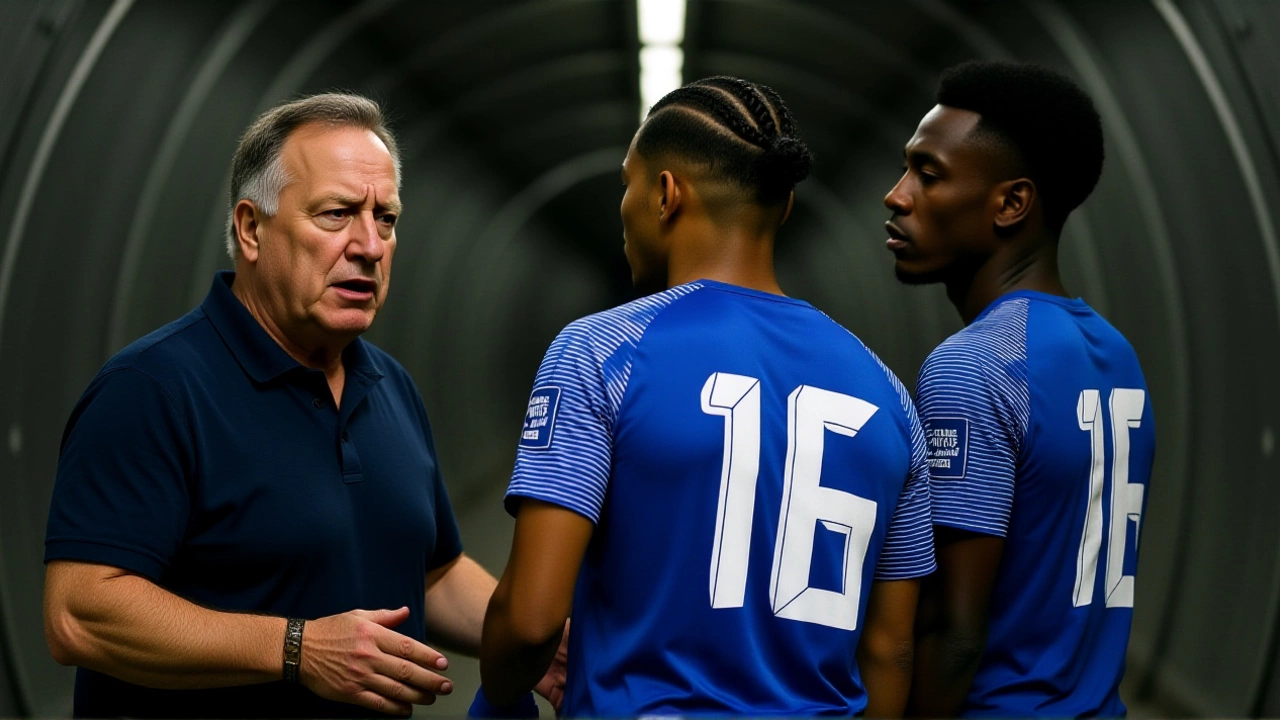
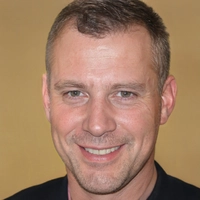
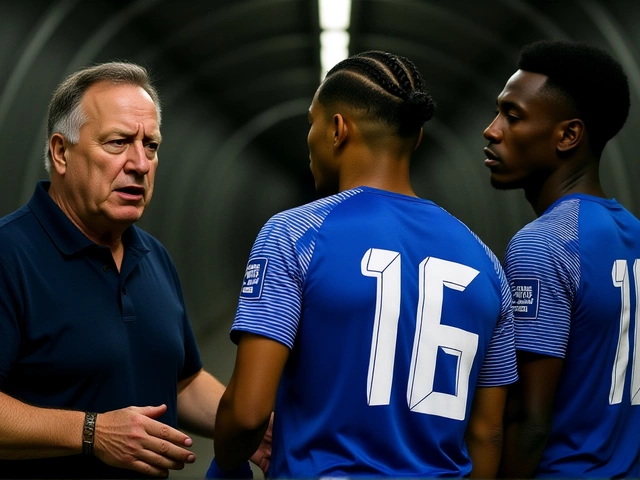
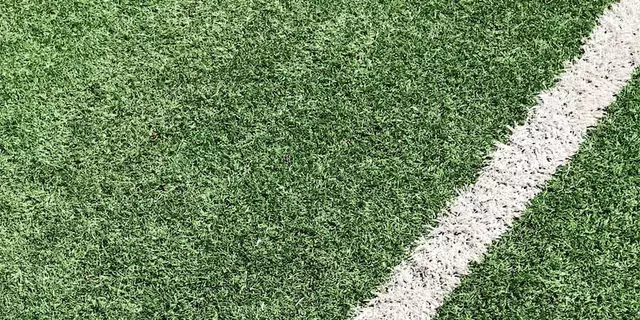
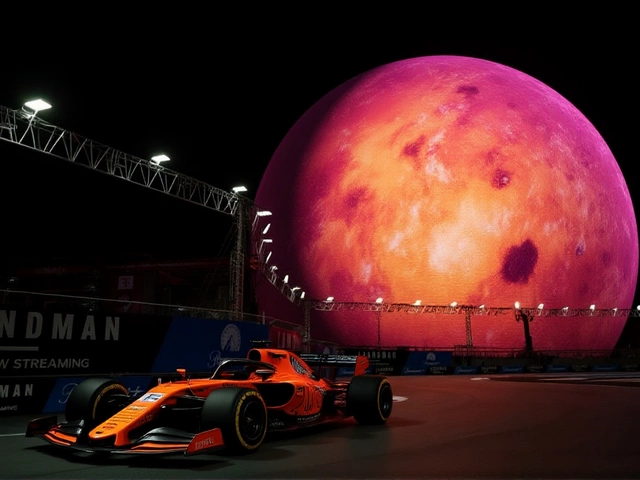
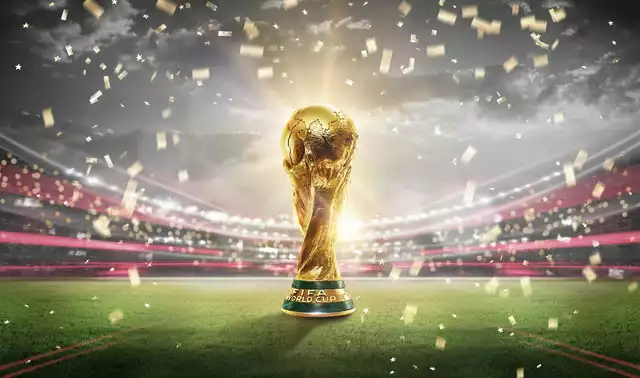
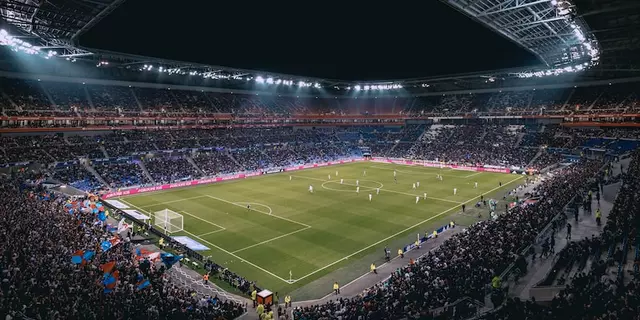
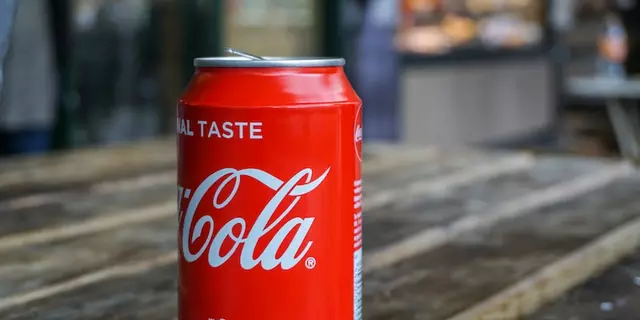
Write a comment